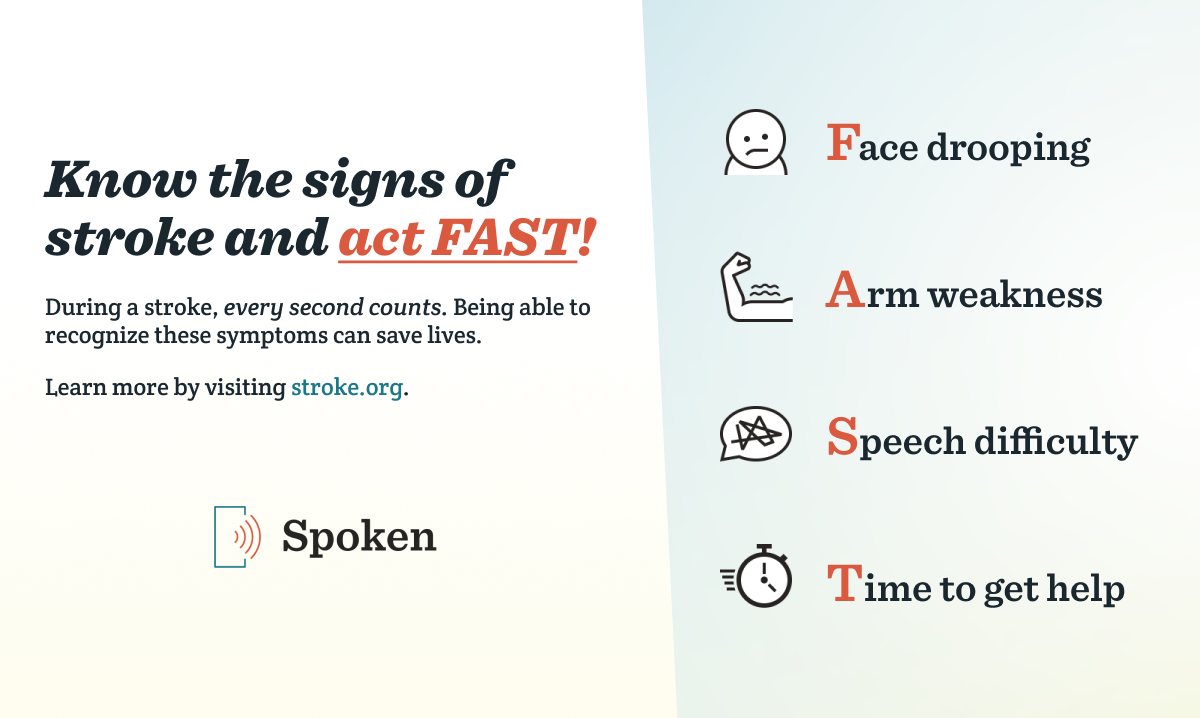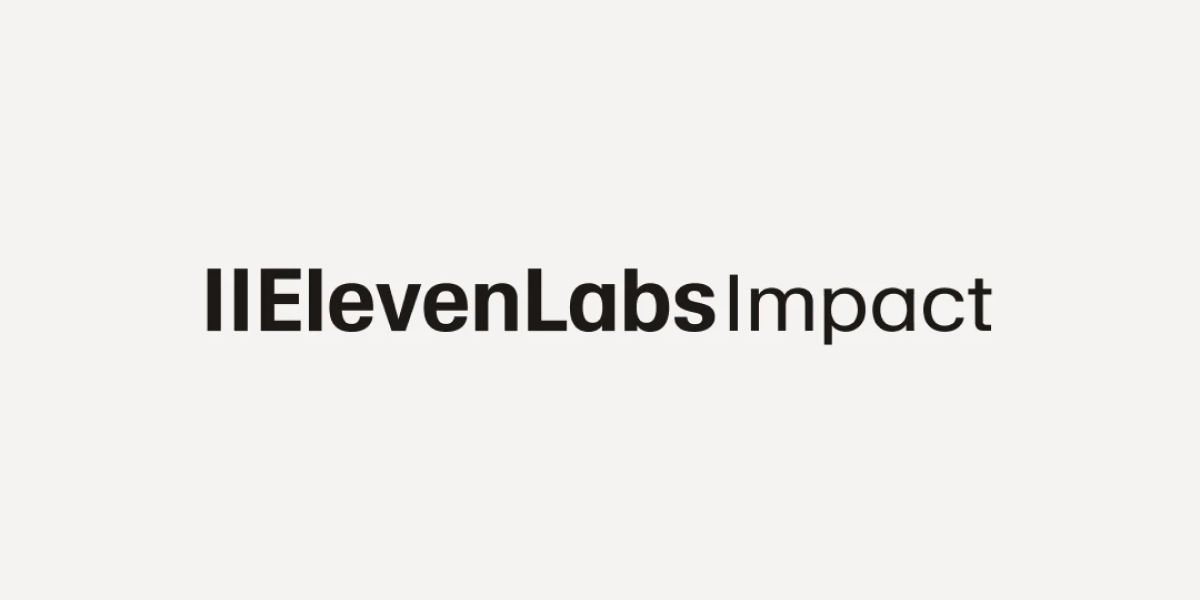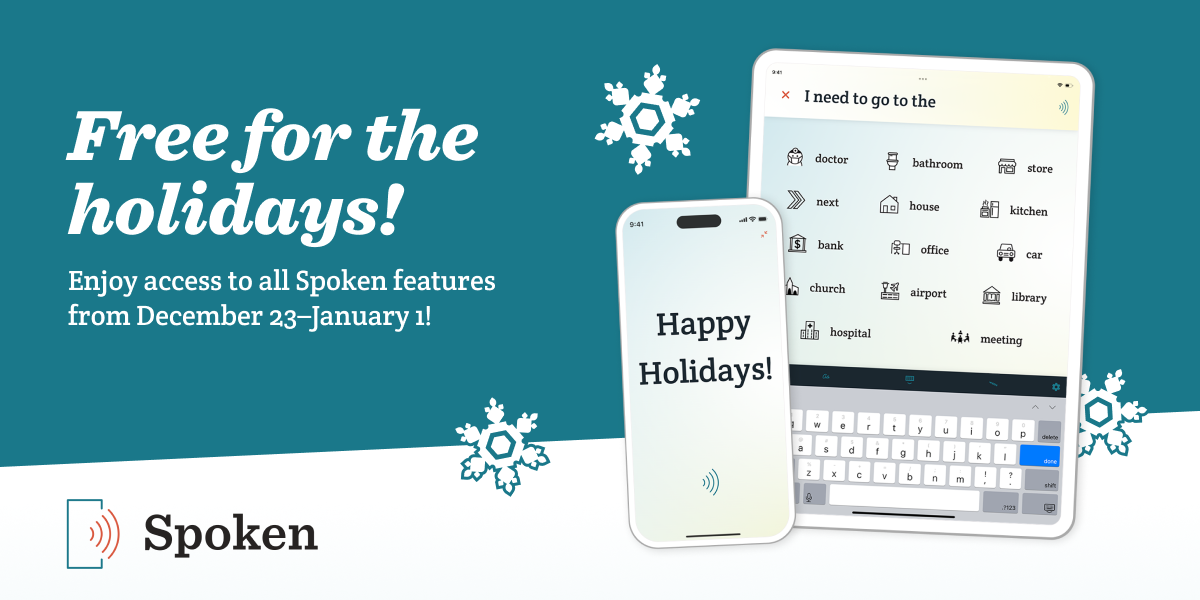Spoken’s Mission This Stroke Awareness Month
Every May, Stroke Awareness Month brings attention to a condition that affects over 12 million people each year. Of course, stroke is far more than just a statistic. Even those who survive a stroke tend to face lasting impacts — one of the most profound being aphasia, a language disorder that makes it difficult to speak, understand, read, or write. At Spoken, we’re dedicated to helping people navigate that reality.
Our app was designed for people struggling with aphasia. We know that communication is everything, so we developed Spoken to make it easier to find the words you need even when they’re not coming to you. It helps stroke survivors express themselves on their own terms, using AI-powered word suggestions to support natural conversation. Whether it’s ordering a coffee, chatting with family, or making a joke, our goal is to make those everyday moments feel possible again.
This month is also a good time to talk about prevention and awareness. Recognizing the signs of stroke can save lives and early detection may even prevent lasting effects. A popular mnemonic to help remember the signs of stroke is the acronym FAST. Our graphic below explains what each letter stands for:

Of course, it’s also important to be aware of how to prevent stroke in the first place. Although stroke can affect anyone, managing risk factors can reduce the odds.
- Blood Pressure: Have your blood pressure checked regularly. High blood pressure is one of the most significant risk factors for stroke. Dieting, exercise, and medication can help manage high BP.
- Cholesterol: High cholesterol can impact blood flow and increase the risk of stroke. Dietary changes like reducing the amount of saturated and trans fats you consume can reduce your cholesterol level. If these changes aren’t enough, medications are also available.
- Lifestyle: Maintaining a healthy diet, exercising, and avoiding alcohol and cigarettes can reduce the risk of stroke.
At Spoken, our mission goes beyond assisting stroke survivors with communication — we also want to help avoid that outcome in the first place. By raising awareness about risk factors and early warning signs, we hope to play a small part in reducing the number of people affected each year. If you can, please contribute to the cause by sharing this information with others.
Want to learn more or help someone communicate after a stroke? Browse the rest of our site to see how Spoken can help. To learn more about stroke, we suggest visiting the American Stroke Association website.
About Spoken
Spoken is an app that helps people with aphasia, nonverbal autism, and other speech and language disorders.


